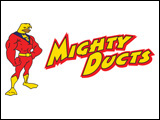Upon reading Pope Francis’ encyclical, I was impressed not only with his grasp of the scope of the ecological and economic crises we face but also with his unapologetic call for action. While some current voices are telling us any changes we make will be too late anyway, the Pope holds out hope that if we all act together we can at least avoid the worst of the impending scenarios that threaten us.
In his introduction, the Pope states there are various themes that will keep reappearing in this document. Reviewing them, I think, forms a good basis for the actual content of the encyclical.
- There is an intimate relationship between the poor and the fragility of the planet: Whether it is increasingly unpredictable weather patterns, the loss of species or rising ocean levels, the poor are less able than the rich to adapt to these changing realities. Those with greater resources at their disposal can more easily relocate, if necessary, or simplify their lifestyles in the context of a changing environment. However, those already living at a subsistence level simply face increased deprivation and suffering. So the best way to allow the poor to improve their lot in life is for the wealthy of the world to demand less for themselves.
- Everything in the world is interconnected: For too long we have assumed that we do not have to close the loop that allows for rejuvenation of the natural environment once we have extracted what we think we need for our livelihood. This awareness can move us to adjust our lifestyles to minimize environmental degradation.
- Technology has both positive and negative potential: There is no question that much technology has served to improve the lives of many people. But when technology is used solely as a servant to increase profits without regard for long-term impact on the environment and the quality of human life, major degradation is inevitable. We would do well to begin to imagine a way of life that is not totally beholden to the technocratic model; that is, make technology our servant instead of our master.
- We must explore new ways of understanding the economy and progress: It is a common assumption that the best economic model is a capitalism that rests solidly on the foundation of human greed and that progress should always and only be defined in terms of growth. We must begin to recognize that some aspects of modern capitalism have begun to work against long-term sustainability of the human species. That will propel us to begin making economic choices, not on the basis of potential growth, but on the basis of long-term sustainability.
- Every creature or life-form in the world has an intrinsic value: Without this orientation we can become quite calloused with respect to the loss of biodiversity in our environment. The loss of every species means the loss of certain specific genes that might hold the key for our future welfare. This calls for what Pope Francis calls an “ecological conversion.” That is to say that we must come to the realization that our encounter with God affects our encounter with our world. We must actively seek a way of life that preserves biodiversity instead of destroying it.
- We must understand the human meaning of ecology: While people of faith believe that there is something special about human beings in the whole scheme of creation, we must also understand that human existence is integrally related to all other life on the planet. Especially in the context of massive ecological degradation, we must at the same time recognize that we simply do not have a life that can be severed from our environment. As humans, we are a part of the ecological environment and therefore must strive to live in sync with it as much as possible.
- Given the present crisis, there is a need for forthright and honest debate both to establish the facts and to seek solutions: We have known for a long time that some voices in the public square have tried to deny that there is an ecological crisis happening in our world. Frequently that perspective is fueled by the vested interests individuals and corporations have in keeping up the status quo. Such voices need to be exposed and everyone must be challenged to speak openly and with integrity about ecological concerns. To remain quiet in the face of impending doom is not a faithful option.
- It is important to develop both local and international policies that take the present crisis seriously: Helpful policies, at whatever level, emerge from helpful dialogue. It is not enough for individuals to commit to living responsibly, as good as that may be. We must learn to work together with others in the faith community and beyond to organize, advocate and develop helpful environmental policies that will result in healthy changes on a broad front.
- We must reverse the dynamics of a throw-away culture: Mass production and a reliance on cheap fossil fuel has created a throw-away culture in which obsolesce is built into the products we buy and use. When a product no longer works, we simply throw it away and buy a new one. We need to make efforts at not only limiting our purchases, and thereby challenging our consumer culture, but also purchasing quality products that can be repaired or repurposed for some other use after it no longer works.
- In light of the present ecological crisis we must rethink our lifestyles: As individuals, small groups and larger communities, we must come to understand that “life-as-usual” is not an option; but understand instead that less is often more and humbly begin the process of forming new life habits that help instead of hinder environmental sustainability.
Pope Francis has spoken out clearly about our present ecological and economic crises. The question is whether anyone in listening. Everyone should be.



